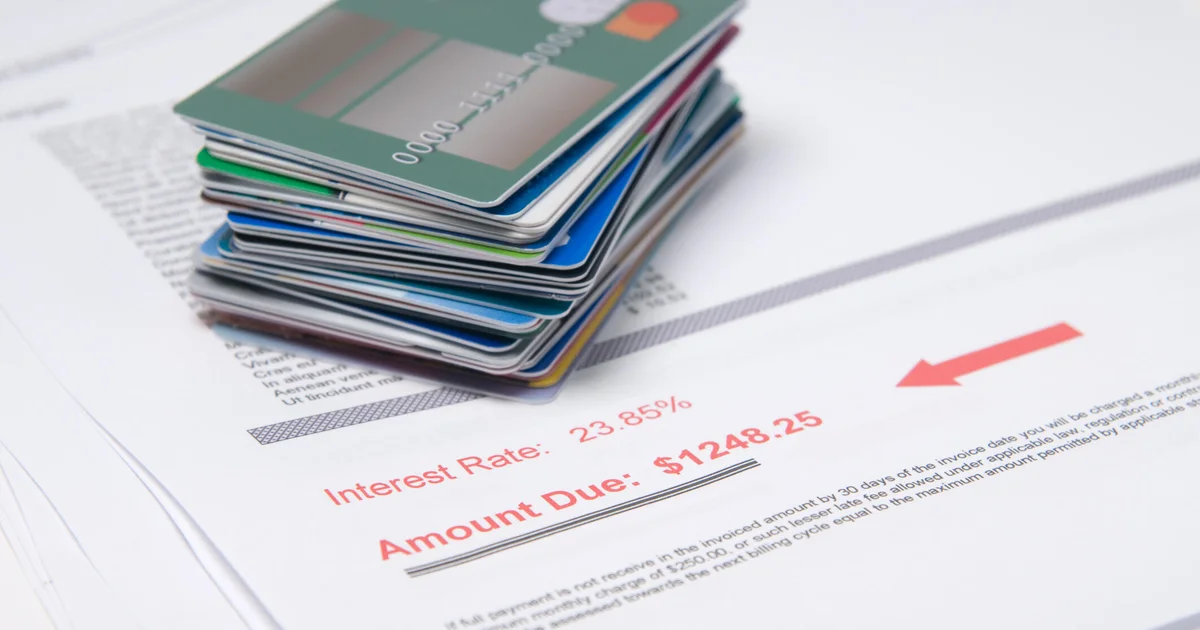Copyright CBS News

American credit card debt is now at record levels, topping out at over $1.21 trillion, as of the most recent numbers. When you throw in inflation and how high credit card rates are — even despite recent Federal Reserve rate cuts — those debts are becoming increasingly problematic for many consumers. "Credit card debt remains at record highs, driven by persistent inflation and elevated interest rates that make carrying a balance more costly," says Gina Seibert, chief financial officer at PSECU credit union. "Many households are relying on credit cards to manage everyday expenses, which means balances are staying higher for longer. Americans are also paying more in interest than they were a few years ago, adding to the financial strain." Are you struggling with mounting credit card debt? Is now the right time to pursue debt relief to get out from under those balances? We asked some experts for their thoughts on pursuing debt relief this November. Start by checking your credit card debt relief options here now. Should you pursue credit card debt relief this November? Not sure if credit card debt relief is the right move to make this month? Here's when it does and doesn't make sense, according to the experts we spoke with: Yes, if you are looking for interest rate relief If you're looking to get a break from the sky-high interest rates that come with credit cards these days, then it could be a good time to explore debt relief. That's because experts don't see rates improving much for credit cards — even if the Fed does continue cutting rates. "Because most credit card interest rates are tied to the prime rate, consumers won't see meaningful relief until the Fed makes more substantial moves," Seibert says. "While the Federal Reserve has held interest rates steady in recent months, it hasn't signaled deep cuts in the immediate future." The Fed only cut rates by 25 basis points at its September and October meetings, and future rate cuts are unclear, thanks to rising inflation and unemployment numbers. In fact, Fed Chair Jerome Powell even indicated a slowdown in rate moves may be in the cards. As he put it, "If you're driving in the fog, you slow down." Fed cuts aside, there are also credit card company bottom lines to consider. And according to Howard Dvorkin, chairman at Debt.com, they tend to protect those closely — usually with higher interest rates — in times of financial uncertainty. "Credit card issuers are some of the most nervous corporations in the world," Dvorkin says. "They loathe uncertainty, and we're neck-deep in that right now. I expect nothing to change very much for a long time." For all these reasons, exploring some sort of debt relief that can reduce your interest rate may be a good move right now. That might look like negotiating a lower rate with your credit card issuer, settling your debts, or moving your balances to a zero-interest balance transfer card or lower-interest consolidation loan. Learn more about your credit card debt relief options online now. Yes, if you see your financial situation declining Unemployment and inflation have been rising lately. If you expect either or both of these to impact your finances significantly, then debt relief may be something to explore now — before things can worsen. This is particularly true if you're already struggling to make payments toward your debts. "You should start considering debt relief as soon as you realize you can't sustain your payments or paying it down is getting harder and harder," says Chuck Czajka, founder of Macro Money Concepts, a financial advisory firm. If you become unable to make your payments down the line, it can put a big dent in your credit score. And for many debt relief options, you need a good credit score — either to qualify or to get an affordable rate when you do. "It's important not to wait until debt feels unmanageable," Seibert says. "If monthly payments consistently strain your budget or you're relying on new credit to cover essentials, it's time to consider debt relief. The earlier someone acts, the more options they'll have." Yes, if you choose your debt relief strategy wisely Not all debt relief solutions are created equally — especially right now. In the current climate, debt consolidation is often one of the best choices, as it can give you serious relief on the interest rate front. "Your consolidation loan is going to be lower than your average credit card rate 99.9999% of the time so it would definitely be a better idea than taking on a 25%-plus credit card interest rate," says Chace Cooper, director of business development at Double E Financial Solutions. "You could be looking at anywhere from 9 to 16% based on the term as well as assuming that you have a fair credit score." That last part is important, as your rate on a debt consolidation loan will rely heavily on your credit score — and the better your score, the better your rate will be. Debt management programs can be another option to explore right now, as they can help you streamline your balances into one single one and often reduce your rate. This can be helpful if you're having trouble staying on top of your payments or expect your finances to get worse due to inflation, job losses, or other economic conditions. These plans also won't come with the credit hit that many other options — like debt settlement, for example — bring about. "Debt forgiveness or settlement programs should be viewed as last resorts due to their credit impact and potential tax consequences," Seibert says. "The goal should always be to regain control of debt while protecting long-term financial health." No, if your spending's not in check If you're still racking up credit card debt or think you'll continue to need to in the future, debt relief probably isn't the way to go in today's high-rate, high-inflation market. In this scenario, you may be tempted to run up debts again on your consolidation loan or freed-up credit cards, making your problem worse (and more expensive) in the long run. Instead of debt relief, you may want to focus on getting on a budget, increasing your income, or working with a financial professional or credit counselor who can help you get your finances and spending habits on track. The bottom line



